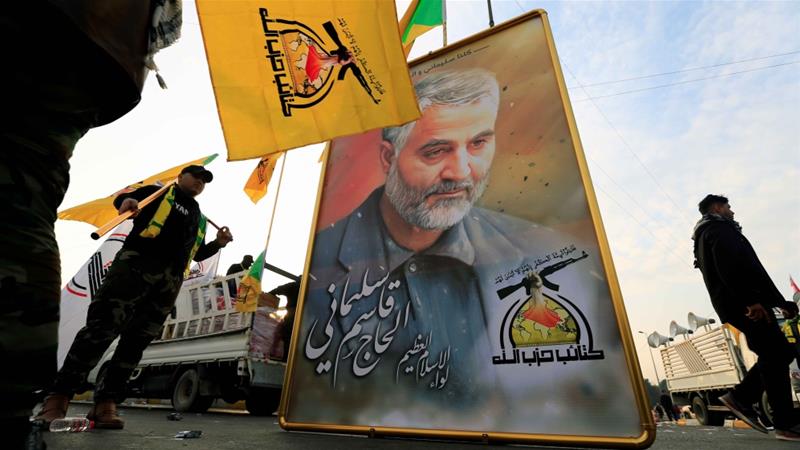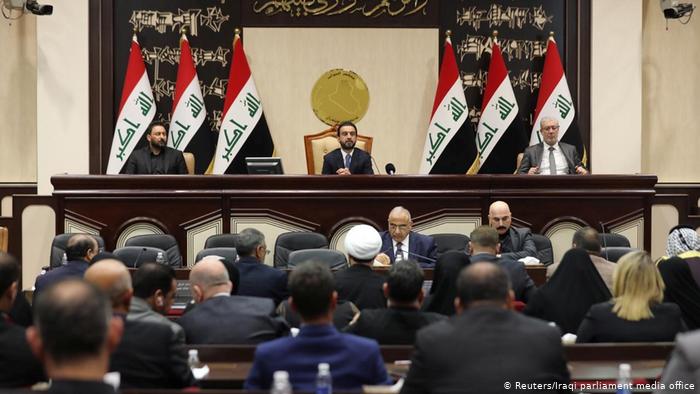Experts said Iranian officials are trying to demonstrate to the U.S. and its allies that the Islamic Republic is able to push back and gain leverage against the Trump administration’s “maximum pressure” policy, which intensified after President Trump pulled the U.S. out of the landmark nuclear deal in May 2018 and reimposed crippling sanctions, making it difficult for Iran to export oil, the foundation of the country’s economy.
China, Russia and leading Western European countries have sought ways around the U.S. sanctions, but it has been difficult to bypass them.
“The message that Iran is sending is that it is capable of making international waters unsafe not just for the U.S., but for international trade,” said Reza H. Akbari, a program manager and Iran expert at the Institute for War and Peace Reporting.
These are the reasons for oil tanker seizures and attacks by Iranian limpet mines.
Tensions between the West and Iran bubbled to a historic height in recent days after the assassination of top Iranian military commander Qassem Soleimani and Tehran bombed two Iraqi bases that housed US troops.
They have sparked fears of wider US-Iran attacks in the greater region, which could take place in and around the Strait of Hormuz, a narrow body of water linking the Persian Gulf to the Gulf of Oman, which feeds into Arabian Sea and the rest of the world.
A satellite image of marine traffic passing through the Strait of Hormuz as on January 9, 2020.MarineTraffic.com
While Iran’s leaders claim to have “concluded” their revenge for Soleimani’s death — and President Donald Trump appears to believe them — many regional experts and diplomatic sources say Iran could unleash other modes of attack, which include unleashing allied militias to disrupt the Middle East.
One strategy could include Iran closing the Strait of Hormuz, which would stop oil tanker traffic, disrupt global oil supply, and send prices shooting up.
Here’s what you need to know about this valuable strait.
Some 21 million barrels of crude and refined oil pass through the strait every day, the EIA said, citing 2018 statistics.
That’s about one-third of the world’s sea-traded oil, or $1.2 billion worth of oil a day, at current oil prices. The majority of Saudi Arabia’s crude exports pass through the Strait of Hormuz, meaning much of the oil-dependent economy’s wealth is situated there. Saudi state-backed oil tanker Bahri temporarily suspended its shipments through the strait after Iran’s missile strikes in Iran, the Financial Times reported.
Last June Iran shot down a US drone flying near the strait, and a month later a US warship — USS Boxer — also shot down an Iranian drone in the same area.
Shortly after Iran’s drone attack, President Donald Trump questioned the US’ presence in the region, and called on China, Japan, and other countries to protect their own ships passing through the Strait of Hormuz.
Trump noted that much of China and Japan’s oil flow through the strait, and added: “So why are we protecting the shipping lanes for other countries (many years) for zero compensation.”
While a large proportion — 76% — of oil flowing through the chokepoint does end up in Asian countries, the US still imports more than 30 million barrels of oil a month from countries in the Middle East, Business Insider has reported, citing the EIA.
That’s about $1.7 billion worth of oil, and 10% of the US’s total oil imports per month.
Iranian leaders, who have also vowed retaliation for the death of Soleimani, have threatened to close down the strait multiple times in the past.
If Iran followed through with these threats, it would likely cause huge disruption to the global oil trade. As the strait is so narrow, any sort of interference in tanker traffic could decrease the world’s oil supply, and send prices shooting up.
Global oil prices have proven vulnerable to tensions between Iran and the West before. After the Trump administration said in April 2019 it would stop providing sanctions waivers to countries who purchase Iranian oil, prices rose to their highest level since November the year before, Axios reported.
How likely is Iran to shut down the strait?
Iran is more likely to disrupt traffic in the Strait of Hormuz than to engage in an all-out conventional war with the US, which is much stronger militarily.
But doing so comes with high costs to Iran.
To close down the entire strait, Iran would have to place at least 1,000 mines with submarines and surface craft along the chokepoint, security researcher Caitlin Talmadge posited in a 2009 MIT study. Such an effort could take weeks, the study added. (taken in part from here)






